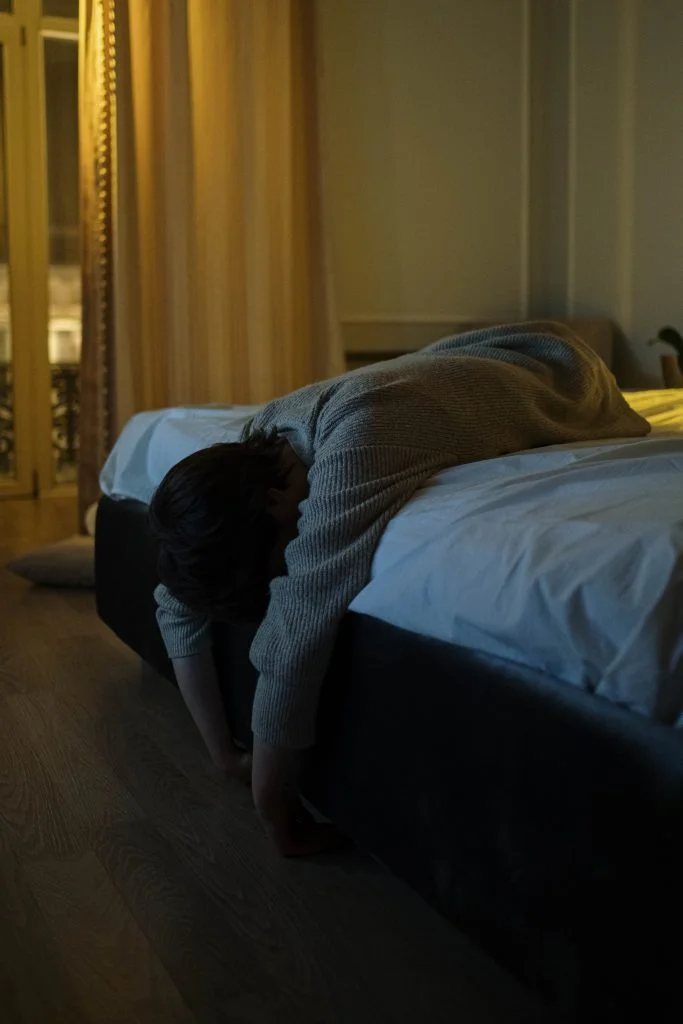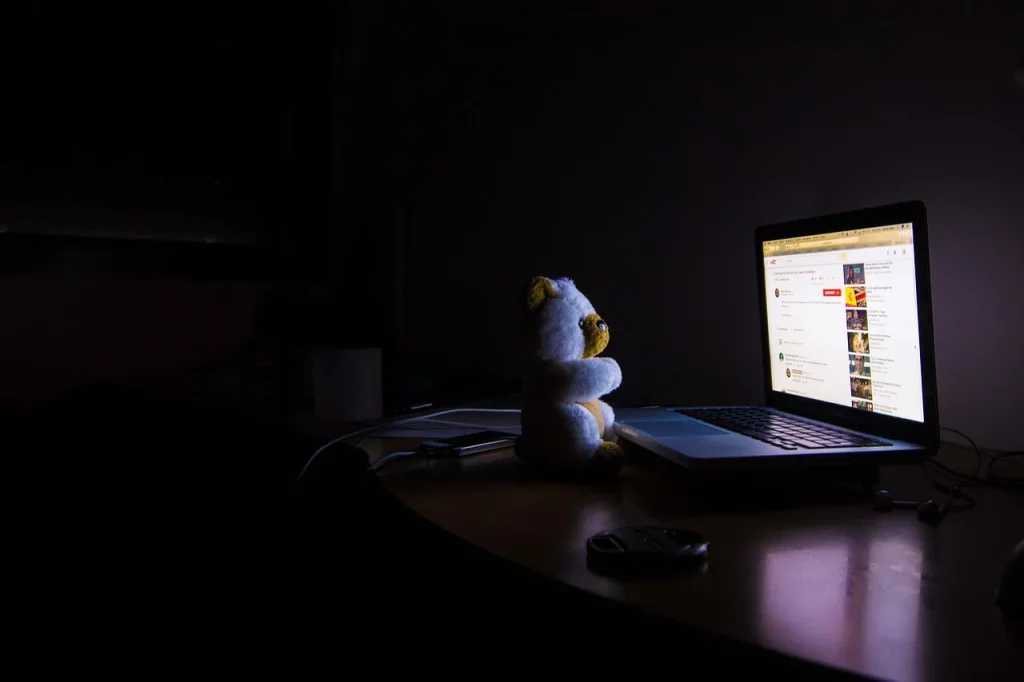Imagine a world where the sandman misses your house night after night. That’s the reality for many people with insomnia. We are going to explore the elusive quest for sleep. Did you know that insomnia can affect anyone, regardless of age or lifestyle?
As we navigate through these fascinating facts, we’ll examine how this disorder influences daily life, its various forms, and groundbreaking research that might soon offer new hope. Have you ever wondered what goes on in the body during those sleepless nights? Let’s find out together.
The worst thing in the world is to try to sleep and not to.
F. Scott Fitzgerald
Insomnia Facts
Get ready to explore the night with these interesting facts about insomnia. Keep your eyes wide open, because there’s a quiz at the end that will put your knowledge to the test!
- Insomnia is a common sleep disorder characterized by difficulty falling asleep, staying asleep, or both.
- People with insomnia often experience daytime fatigue and impaired performance.
- Insomnia can be categorized into two types: acute and chronic.
- Acute insomnia is short-term and often related to life stressors.
- Chronic insomnia lasts for three months or more and occurs at least three nights a week.
- Women are more likely to suffer from insomnia than men.
- Older adults are also more prone to insomnia due to changes in sleep patterns.
- Insomnia can be a symptom of mental health disorders like depression and anxiety.
- Stressful life events, such as a job loss or the death of a loved one, can trigger insomnia.
- Poor sleep habits, including irregular sleep schedules, can contribute to insomnia.
- Insomnia often coexists with other health conditions, such as chronic pain or sleep apnea.
- Medications for colds, allergies, depression, high blood pressure, and asthma can cause insomnia.
- Caffeine, alcohol, and nicotine can also interfere with sleep.

- Excessive screen time before bed can disrupt sleep patterns due to blue light exposure.
- Jet lag and shift work can disrupt the body’s circadian rhythm, leading to insomnia.
- Insomnia can lead to a higher risk of developing chronic diseases such as heart disease and diabetes.
- People with insomnia have a higher risk of accidents and errors at work.
- Cognitive-behavioral therapy (CBT) is considered an effective treatment for insomnia.
- CBT for insomnia focuses on changing sleep habits and misconceptions about sleep.
- Medications, including sleep aids, are sometimes used to treat insomnia, but they can have side effects.
- Regular physical activity can help improve sleep quality and alleviate insomnia.
- A consistent sleep schedule and a bedtime routine can help combat insomnia.
- Relaxation techniques, such as meditation and deep breathing exercises, can promote better sleep.
- Creating a comfortable sleep environment, free from noise and light, is essential for good sleep.
- Limiting naps, especially in the afternoon, can help improve nighttime sleep.
- Insomnia is not defined by the number of hours you sleep, but by the quality of your sleep and how you feel during the day.
- There is a strong link between gastrointestinal problems like heartburn and insomnia.
- Eating a heavy meal close to bedtime can cause discomfort and contribute to sleep disturbances.

- Reading or other relaxing activities can help prepare the body for sleep.
- Exposure to natural light during the day can help maintain a healthy sleep-wake cycle.
- Insomnia can lead to weight gain and obesity due to hormonal imbalances affecting appetite.
- Long-term use of sleeping pills for insomnia can lead to dependence and tolerance.
- Some people with insomnia tend to overestimate the difficulty they have sleeping.
- Insomnia can lead to reduced concentration and memory problems.
- Mood swings and irritability are common in people suffering from insomnia.
- Avoiding stimulating activities before bedtime, such as vigorous exercise or engaging work, can aid in sleep.
- Practicing sleep hygiene is essential for managing insomnia.
- Insomnia is not just a nighttime problem; it affects daytime functioning and quality of life.

- Some forms of psychotherapy, like stress management, can be beneficial for insomnia sufferers.
- Environmental factors, such as a room that’s too hot or cold, can contribute to sleep disturbances.
- Genetics may play a role in our susceptibility to insomnia.
- Insomnia can increase the risk of mental health issues like depression and anxiety.
- Regular use of electronic devices before bed can prolong the time it takes to fall asleep.
- Insomnia can lead to a feeling of helplessness or frustration regarding sleep.
- Mindfulness and meditation can improve sleep quality and reduce the time it takes to fall asleep.
- There is no one-size-fits-all remedy for insomnia; treatment needs to be individualized.
- Keeping a sleep diary can help identify patterns and triggers of insomnia.
- Insomnia can worsen other chronic conditions, such as arthritis or back pain.
- Some individuals with insomnia may experience parasomnias, such as sleepwalking or night terrors.
- Understanding the underlying causes of insomnia is crucial for effective treatment.
Insomnia Myths

After delving into the facts, let’s now unravel the myths about insomnia and discover what’s really true.
- Insomnia is Simply the Inability to Sleep at Night
Insomnia is more complex. It includes difficulty falling asleep, staying asleep, or waking up too early. It’s not just about the time of day, but the quality and duration of sleep. - Watching TV Helps You Fall Asleep
Screen time before bed can actually hinder sleep. The blue light from screens disrupts the body’s production of melatonin, the sleep hormone, making it harder to doze off. - Alcohol is a Good Sleep Aid
While alcohol might help you fall asleep, it disrupts sleep quality. It can lead to fragmented sleep and prevent you from reaching deeper, more restorative sleep stages. - Insomnia is Always a Mental Health Issue
Insomnia can have various causes, not just psychological ones. It can be due to medical conditions, lifestyle choices, or even medications. It’s a complex issue with multiple facets. - Older People Need Less Sleep
Sleep needs don’t significantly decrease with age. Older adults still need 7-8 hours of sleep, but they may face more sleep disturbances due to health conditions or changes in sleep patterns.
No products found.
Insomnia Quotes

Insomnia is a serious issue, and you have to treat it like one. While I was researching these facts, I found some quotes from notable figures. Here are my five favorite ones:
I couldn’t stop thinking. My body was exhausted, but my mind was still going.
Heath Ledger
Heath Ledger’s words poignantly describe the disconnect between mental and physical exhaustion that is often experienced in insomnia.
Insomnia is not to be forced to stay awake but being forbidden to fall asleep.
Charlotte Brontë
Charlotte Brontë offers a unique perspective on insomnia, emphasizing the involuntary nature of this condition.
Sleeplessness is a herald of death.
Leonardo da Vinci
This dramatic quote from Leonardo da Vinci highlights the extreme stress and anxiety associated with chronic insomnia.
If you can’t sleep, then get up and do something instead of lying there worrying. It’s the worry that gets you, not the lack of sleep.
Dale Carnegie
Dale Carnegie suggests a proactive approach to insomnia, implying that worrying about sleeplessness is more harmful than the lack of sleep itself.
The night is the hardest time to be alive and 4 a.m. knows all my secrets.
Franz Kafka
Franz Kafka eloquently expresses the solitude and introspection that often accompany insomnia, especially in the early hours of the morning.
Insomnia FAQ

Having reflected on the whispers of insomnia through these quotes, we’re ready to dive into the FAQs. Pay close attention – a quiz on these sleepless facts is up next!
- Can insomnia be genetic?
Yes, insomnia can have a genetic component. Research indicates that if your family members have insomnia, you may be at a higher risk of developing it too. However, it’s important to note that genetics is just one piece of the puzzle. Environmental factors, lifestyle choices, and personal health also play significant roles in the development of insomnia. - What is the best medication for insomnia?
The best medication for insomnia varies depending on the individual’s specific needs and medical history. Commonly prescribed medications include benzodiazepines, non-benzodiazepine sleep aids, and antidepressants. However, it’s crucial to consult a healthcare professional for a personalized recommendation, as these medications can have side effects and are not suitable for everyone. - Can insomnia kill you?
While insomnia itself is not directly life-threatening, chronic lack of sleep can lead to serious health issues over time, such as heart disease, diabetes, and high blood pressure. Additionally, the fatigue caused by insomnia can increase the risk of accidents. Therefore, it’s important to address insomnia and seek treatment. - What are the causes of insomnia?
Insomnia can be caused by a variety of factors, including stress, anxiety, depression, certain medications, caffeine, alcohol, and lifestyle habits. Medical conditions like sleep apnea or restless leg syndrome can also contribute to insomnia. It’s often a combination of factors, making it important to identify the underlying causes for effective treatment. - Can insomnia be cured?
Insomnia can often be effectively managed or cured, depending on its cause. Treatment may involve lifestyle changes, therapy, medication, or a combination of these approaches. Cognitive-behavioral therapy (CBT) has been particularly effective for many people. However, the approach to curing insomnia varies from person to person, so it’s important to work closely with healthcare professionals.
No products found.
Insomnia Quiz

Ready for the Insomnia Quiz? Better brush up, because if you score zero, your next dream will be a never-ending lecture on the importance of sleep, given by a very, very boring sheep!
Conclusion
As we conclude this journey through the complexities of insomnia, it’s important to remember that you’re not alone in this struggle. Countless individuals face these challenges every night, searching for the peace that eludes them.
Remember, the path to better sleep isn’t always straightforward, but with patience and the right strategies, a restful night is within reach. What step will you take tonight to embrace the tranquility of sleep?
8 Sources Used For This ArticleMeditation for Insomnia – BetterSleep
Insomnia – Womens Health
Everything You Need to Know About Insomnia – HealthLine
Insomnia – Sleep Foundation
Insomnia – Webmd
Mirtazapine and sleep: will it help you sleep better? – Sleep Station
Sleep deprivation – Better Health


